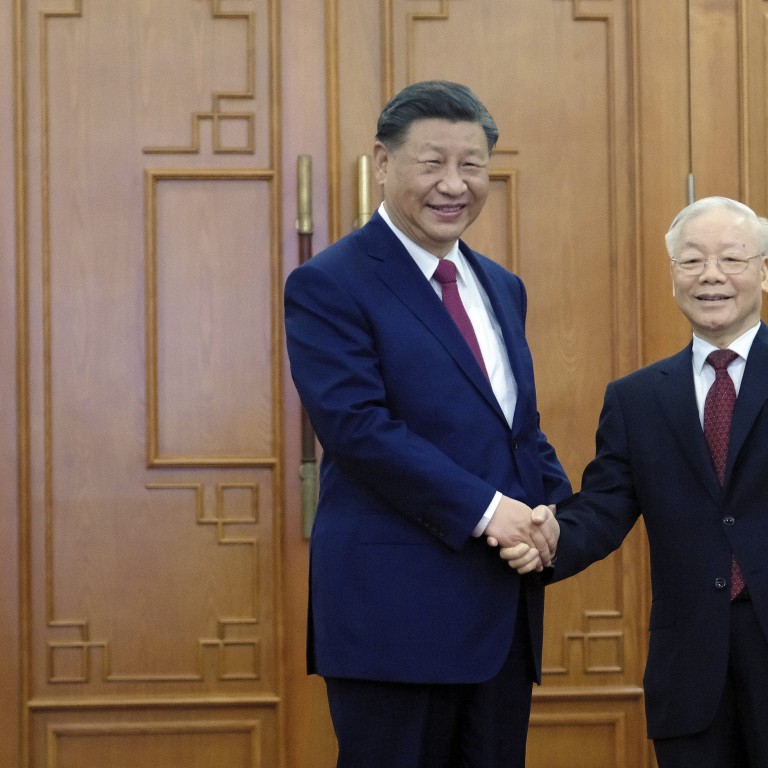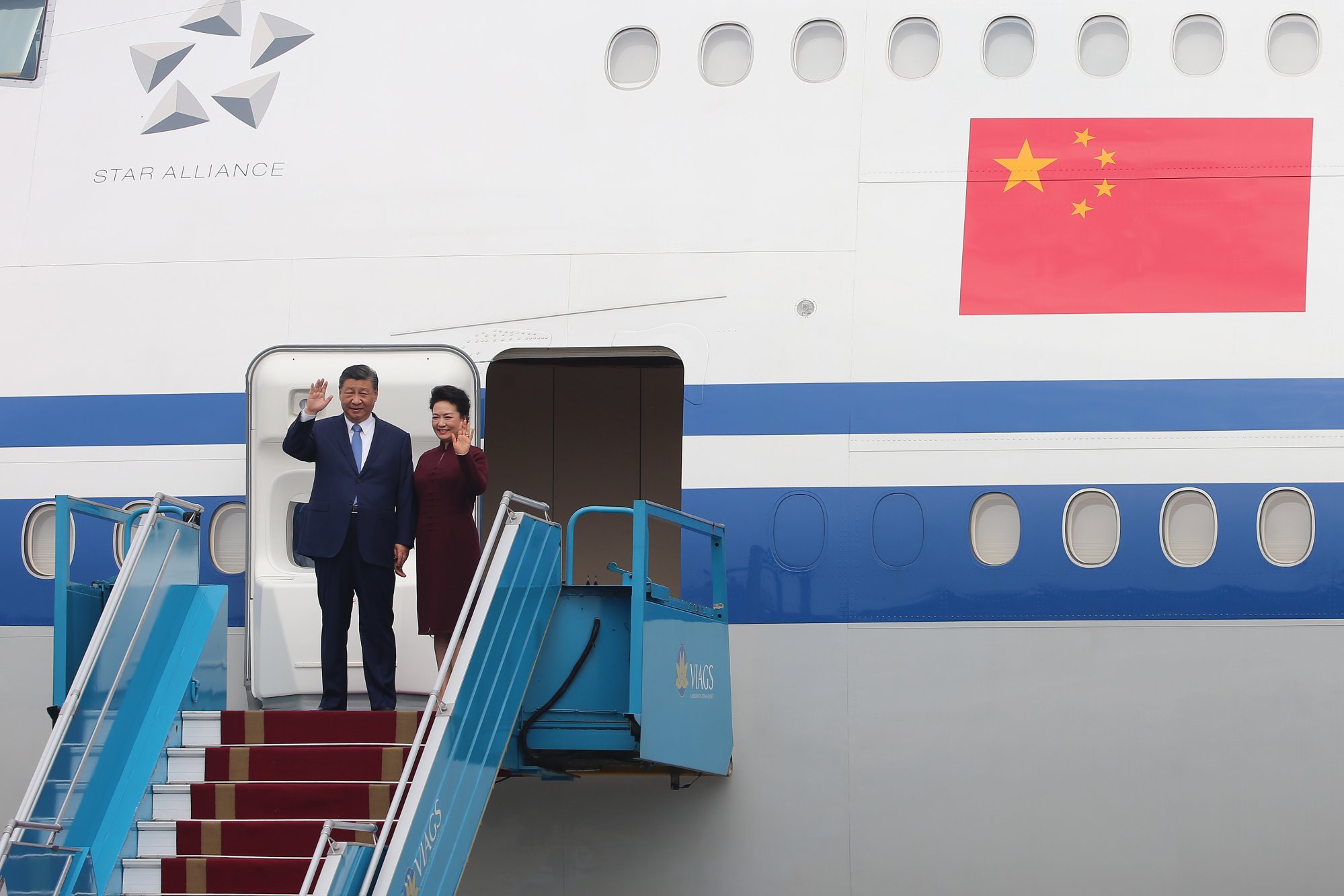
Xi Jinping tells Vietnam it is a ‘diplomatic priority’ as he seeks to strengthen China’s ties with Hanoi
- Xi also used his first visit since 2017 to urge the two countries to seek a ‘mutually beneficial’ solution to their long-running dispute in the South China Sea
- The Chinese leader’s efforts to strengthen relations follow a visit to Hanoi in September by US President Joe Biden
During his two-day visit – which comes three months after US President Joe Biden visited Hanoi – he met Nguyen Phu Trong, the general secretary of the Vietnamese Communist Party, on Tuesday.
Xi said the two countries should jointly build a strategic China-Vietnam community with a shared future “on the basis of deepening the China-Vietnam comprehensive strategic partnership”, according to Chinese state broadcaster CCTV.
“China has always viewed Sino-Vietnamese relations at a strategic level and from a long-term perspective, and has seen Vietnam as a priority in our neighbourhood diplomacy.”
He also told Trong that he believed relations would enter a new phase categorised by higher political mutual trust, deeper mutually beneficial cooperation and better management of risk and differences.
In Vietnam, a ‘shared destiny’ and the US are likely to be high on Xi’s agenda
Ahead of his visit, Xi wrote in an article published in Hanoi’s official mouthpiece Nhan Dan that the two sides should seek a “mutually beneficial” solution to the maritime dispute and “always keep in mind our shared visions and missions”.
“Both sides need to act on the common understandings reached by the leaders of our two parties and countries, properly manage differences on maritime issues, and jointly look for mutually acceptable solutions,” he said.

China fought a brief war with South Vietnam over the Paracel Islands in 1974, about a year before its final defeat to the Communist North.
The two countries also fought a short land war in 1979 over a border dispute and there was another military skirmish in the Spratly Islands in 1988.
There have also been a number of more recent confrontations, including in May when a Chinese survey vessel and its escort ships were accused of violating Vietnam’s exclusive economic zone.
Tensions have also been rising on other parts of the South China Sea – which China claims almost in its entirety – with a number of stand-offs between Chinese and Philippine vessels in recent months, prompting frequent protests from Manila.
In Tuesday’s article, Xi also wrote of the importance of building “a community with a shared future” between the two countries, while warning against the rise of “hegemonism” in the world – language Beijing has often used towards the United States.
South China Sea: China’s envoy to Philippines protests over weekend clashes
Hanoi has a long-standing foreign strategy of trying to build relations with a number of different major powers, rather than just relying on one.
This year it elevated its relations with the US to a “comprehensive strategic partnership” when Biden visited in September, putting it on the same level as China and other countries such as Russia, South Korea and India.
Xi said in his article that both countries “should vigorously promote cooperation, and make due efforts to build an enabling external environment for our respective development and to realise long-term stability and security in our region”.
He also highlighted the “traditional friendship” between the two neighbours, which normalised diplomatic ties in 1991. Xi described them as “vocal advocates of multilateralism” that had “always treated each other with sincerity”.
“No matter how the global environment has changed, our two parties and countries have worked together to uphold peace and tranquillity, pursue development and cooperation, and promote prosperity and progress,” Xi wrote, adding that they had found a “promising path” of cooperation.
On Monday the Chinese foreign ministry hinted that Beijing was seeking to upgrade ties with Hanoi.
“An elevated bilateral relationship is a natural result in accordance with the overwhelming trend,” ministry spokeswoman Mao Ning said.
“Standing at a new historical point, the two sides will be guided by the high-level common understandings … and make new progress in growing our comprehensive strategic cooperative partnership.”
Earlier this month Foreign Minister Wang Yi co-chaired a meeting in Hanoi, where he met Thuong and “reached a new consensus on strengthening cooperation and promoting the sound and steady development of China-Vietnam relations in all fields”, according to state news agency Xinhua.
Xi also touched on cultural exchanges in the article, pointing to the popularity of Chinese literature, film and television productions in Vietnam, and the success of Vietnamese pop stars in China.
“The small creeks of ever closer people-to-people interactions are converging into a mighty river of friendly ties between China and Vietnam,” he said.
Besides Trong, Xi will also meet Thuong, Prime Minister Pham Minh Chinh, as well as National Assembly chairman Vuong Dinh Hue during this visit, according to the Chinese foreign ministry.


